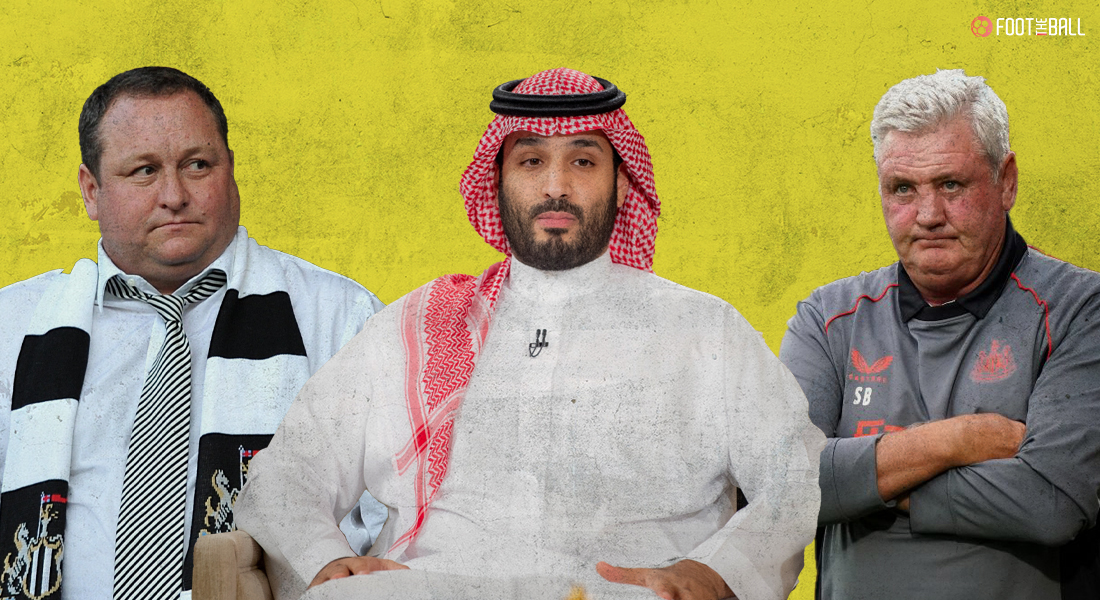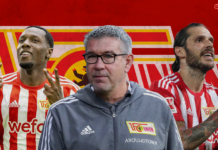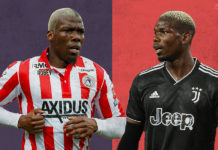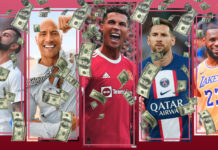Steven Gerrard in the Newcastle dugout? Kylian Mbappe donning the famous black and white jersey? St. James’ Park bowing down to his excellency Mohammed Bin Salman? The possibilities are endless following the takeover of the Magpies by the Saudi Arabian PIF, but they all may not be positive.
An investment group led by #PIF has completed the acquisition of 100% of Newcastle United Football Club @NUFC. pic.twitter.com/EheSktF7fG
— Public Investment Fund (@PIF_en) October 7, 2021
The takeover makes Newcastle’s owners the richest in the history of world football and it has left most fans in a quander on what to make of the move. The Premier League too has come under fire in allowing the move to go through, especially by pundits and journalists who deem the move to be the final straw in the unveiling of football’s true ugly self.
WHAT IS THE PIF AND WHO IS MBS?
PIF stands for Public Investment Fund, which is the sovereign wealth fund of the state of Saudi Arabia. It is chaired by Mohammed Bin Salman (MBS), the crown prince of Saudi Arabia, and a man with a very dubious human rights record that includes murdering dissenting journalists, curbing rights of women, and bombing Yemen for no particular reason.
The fact that PIF owned the planes that transported the killers of Jamal Khashoggi to Istanbul and back provides a great indication of the separation.
— tariq panja (@tariqpanja) October 7, 2021
The Premier League has claimed that Newcastle has not been taken over by the Saudi state but by PIF which is a laughable justification given that a basic search on Google shows that PIF is the nation’s fund. Saudi Arabia and PIF are quite simply the same thing for all purposes imaginable.
WHY DID PIF BUY NEWCASTLE?
The PIF takeover of Newcastle is not the first time that a Middle Eastern state entity with a questionable human rights record has bought out a football club. Manchester City are owned by the City Football Group which is owned by the United Arab Emirates state while PSG are owned by the Qatari state. The reasons for all three of these takeovers ties back to the concept of sportswashing.
Lots of debate over what sportswashing is and whether it even works.
It works spectacularly well
Abu Dhabi and Qatar have hugely deepened relationships with UK/France through club ownershiphttps://t.co/uL8tmBm7Tn
— Miguel Delaney (@MiguelDelaney) October 8, 2021
Sportswashing is the attempt to build soft power and undermine the state’s atrocities against its people in the public conscience by relating it to sports and its contributions to the game. It is an effective tool as soft power can go a long way in reforming a country’s image – just look at the United States of America. The Middle Eastern states are perhaps not the founders of sportswashing but they have certainly been its most explicit and aggressive practitioners.
PIF has come late to the party but it has come with a bigger wallet and to a bigger team than either of UAE or Qatar. Newcastle, despite their relative decline this century, are bigger than Manchester City or PSG were at the time of their takeovers and they hold more power to influence the mass perception.
WHAT IS WRONG WITH THE PIF TAKEOVER OF NEWCASTLE?
There have been many defenders of the takeover, not least from the North-East of England. It has been justified as a simple disdain for ‘new money’ by the old powers of English football which is a huge oversimplification. Any fan of the sport, no matter how bipartisan, wants football to be more competitive and the issue with the incoming money is not that it’s new but rather where it is coming from.
Newcastle fans have also gone on to say that the opposition to the takeover is due to some innate hatred of the club and that Manchester City or Chelsea have not been viewed in the same light. This is rather incorrect as critics of sportswashing have been questioning not only the ownership but also the modus operandi of Manchester City with regards to their finances for a long time now.
1/4 The Newcastle takeover is yet another example of how football allows states with some of the worst human rights records to use it as a geopolitical & sportswashing tool.
The game as a whole must reflect on why it has become so attractive to authoritarian regimes. https://t.co/BJQQetIYG6
— FSE – Football Supporters Europe (@FansEurope) October 8, 2021
Chelsea though are a different case. They are not owned by the state but by an oligarch. That is not objectively a good thing but with relative context it is quite different from the cases of state ownership. Roman Abramovich may hold a lot of power in the Russian state but he is not an official representative.
In general, defenders of the takeover have claimed that it is a case of racism from critics that only the Middle Eastern owners are being called into question while those from America or UK, countries with arguably the worst human rights record, are not. To conflate individual or corporate ownership with state ownership is unjustified. The former has its own issues within the sport and what its limit and role should be in football but is nowhere as serious an issue as that of sportswashing state ownership.
The way football is now conditioned to fetishise money is beyond grim, it really is. Not Newcastle, not Man City: all of it. All of us. https://t.co/UxryxS5TvB
— Rory Smith (@RorySmith) October 7, 2021
The equivalence is just not there across ownerships. If the British government was to invest in a team in its former colonies with the purpose of changing the perception over its actions or if America was to invest in sports in Afghanistan, then that would be sportswashing from the West which is not the case with owners like Glazers or FSG.
The line here to be drawn is not an arbitrary one – one cannot expect all football club owners to be free of all sin and it is beyond the purview of football federations and leagues to question the morality of individuals but the extremely explicit nature of the state atrocities undertaken by UAE and Saudi Arabia deserve to be called out and a stand needs to be taken.
Moreover, the Premier League has, at least in theory, attempted to become a more socially responsible organisation over the past few seasons. The BLM and Rainbow Laces campaigns are two examples of how it has at least helped start a conversation in sport regarding wider social issues. It is hard not to view them as empty gestures when it allows people like MBS to become a substantial part of the sport.
Hi @UtdwithPride : how many lgbt saudis did you speak to before issuing this statement? https://t.co/6HvnaYg9Wu
— Adam Crafton (@AdamCrafton_) October 8, 2021
To stop the Newcastle takeover though would have been hypocritical from the league if it allowed ownership of Manchester City to continue as it is. The problem circles back to a lack of regulation, planning and structure in football. The sport’s role in the community is evolving and action needs to be taken to prevent it from becoming no more than a cog in the power games of politicians around the world.




